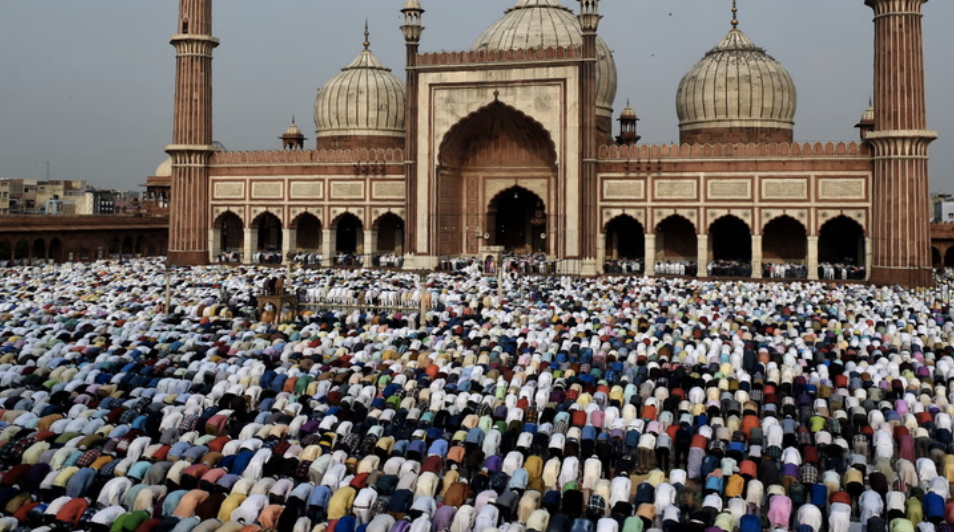My apartment is filled with the aroma of fresh biryani. My mother admires her intricate muslin saree. My cousins argue over how to evenly divide their eidi. For Muslims all around the globe, this is standard procedure for Eid, specifically, Eid-Ul-Fitr, the most important Islamic holiday.
The holiday, which literally translates to “the feast of breaking the fast”, marks the end of Ramadan, a 30-day period of fasting from sunrise to sunset. Ramadan represents devotion and self-control, as experiencing hunger and thirst is supposed to heighten your awareness of the sufferings of the poor and gain a greater appreciation for what you have. Eid, one of the two official holidays celebrated within Islam (the other being Eid-Ul-Adha), is determined by the lunar calendar and lasts three days. It was originated by the Islamic prophet Muhammad.
Traditionally, Eid is celebrated as a community, but customs differ from region to region. Eid starts with a morning prayer at the local mosque, which is then followed by family gatherings. Mounds of food and desserts are served, gifts are exchanged, and hallways are decorated with lights. The importance of giving to those in need (known as zakat) is heavily emphasized. It is known as a day to seek forgiveness, peace and blessings from God. Muslims adorn themselves in traditional attire and jewelry, and girls apply henna, a red dye sourced from the henna plant, in intricate designs on their palms. Relatives and friends greet each other by saying “Eid Mubarak!” meaning “blessed celebration”.
Muslims praying on Eid morning
Muslims make up a small minority of Fieldston students, and exactly zero faculty members. Russell Marsh, the Director of Community and Inclusion, admitted “I don’t know of any teachers or adults who identify as Muslim.” Alyssa Chaudry (VI) says “sometimes it feels like we’re not even here.” For the Fieldston community, Eid is a reminder to celebrate the contributions of Muslims all over the world.
Muslims have been credited with the discovery of algebra, place value, the Arabic numerals we use everyday, and more during the Golden Age of Islam. More recently, Muslims can be attributed to the invention of BioNTech’s Pfizer Covid-19 vaccine. The founder and CEO of BioNTech, Uğur Şahin, and his wife, Ozlem Türeci, have dedicated their entire lives to specializing in cancer research and immunology. In fact, on the day they were married, the two returned straight back to the lab after the ceremony. Unknownst to many, they are Muslim. It is interesting to note that their religious background is scarcely mentioned.
BioNTech founders Uğur Şahin and Ozlem Türeci
Yet 48% of Muslim Americans say they have experienced racial or religious discrimination in the past few years, according to a 2017 survey by the Pew Research Center. In the survey, many admit they have experienced being treated with suspicion, denied job interviews, singled out by airport security or called offensive names. Those who appear Muslim – either because of the way they look, dress or speak – are more likely to experience discrimination, and women are more likely to report discrimination than men. These statistics were particularly heightened due to 9/11.
It is disappointing that there is little acknowledgement of Eid at Fieldston. Last year, the only acknowledgement of Ramadan came in an email titled “News from the office of Student Life”, and this year wasn’t that much of an improvement. Because of this, I can’t help but wonder if our highschool is truly as inclusive as it prides itself on being. 2022 marks the first year we have the day off for Eid. Recognizing Eid as a holiday is a step in the right direction, but we still have a long way to go in terms of celebrating Muslim contributions to the world.






